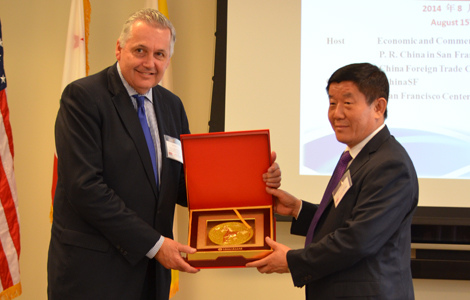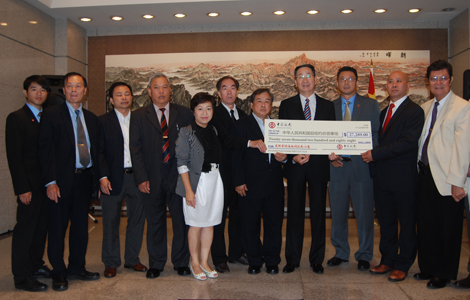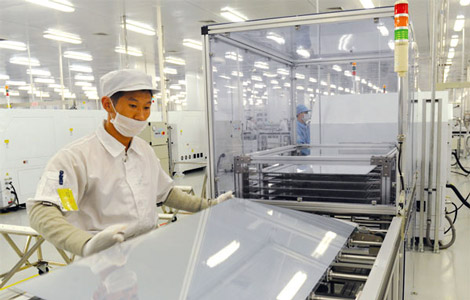Boomtime ahead for solar power firms
Updated: 2014-08-16 10:02
By LYU CHANG(China Daily)
|
||||||||
 |
|
An employee with the State Grid Lanxi Power Supply Company inspects solar panels in Gangxialing village, Lanxi, East China's Zhejiang province, May 14, 2014. [Photo/Xinhua] |
New policy to encourage distributed power generation projects on cards
The distributed solar generation industry is getting a big boost in China, where a new solar policy is expected to be announced later this month to encourage households and small businesses to install distributed solar projects, industry insiders said.
Distributed generation refers to scattered solar plants close to where it is used, rather than being produced by large power plants.
But China has a low installation rate with regard to distributed solar power due to difficulties with cost and connecting to the grid.
Although a policy to push distributed solar generation has been around for a while, the new plan gives more detailed support to enable easier grid connection, the sources said.
 |
 |
"I think the new policy will help release more market capacity and benefit under-loaded projects with abundant solar energy resources," Wang said.
Earlier this month, Wu Xinxiong, head of the National Energy Administration, told a meeting with solar companies in Zhejiang province that the country will encourage solar projects to be built on barren hills and abandoned land, lakes, fishponds, greenhouses and other resources.
For projects with a capacity of no more than 20,000 kilowatts and under the scale of 35 kilovolts connected to the grid, Wu said they can enjoy the local benchmark price for photovoltaic electricity, which varies from different provinces. The national benchmark price for PV electricity is 0.9 yuan (14 cents), 0.95 yuan and 1 yuan per kilowatt hour, depending on the solar power resources, according to the National Development and Reform Commission.
At the same time, more support will be given to installations of solar panels in public infrastructure such as hospitals, schools, railway stations and airports.
The government will encourage low-cost financing for distributed projects and encourage the forming of PV industry investment funds among insurance companies and trusts.
Electricity generated by distributed PV plants now accounts for less than 1 percent of China's total PV generation, compared with some 70 percent in Germany and 80 percent in the United States.
"It will be a good move, but it takes a long time to execute, due to restrictions on the ownership of rooftop connection to the grid, so whether it will pay off is still uncertain," said Li Junfeng, head of the China Renewable Energy Industry Association, which is under the National Development and Reform Commission.
China has set targets for installed solar capacity for this year. The overall target is 14 gW of solar capacity, with 6 gW in utility-scale facilities and 8 gW of distributed generation.

 Delegation visits San Francisco to promote Canton Fair
Delegation visits San Francisco to promote Canton Fair
 Chinese medics train Sierra Leone health workers
Chinese medics train Sierra Leone health workers
 Chocolate gets new foothold in Shanghai
Chocolate gets new foothold in Shanghai
 Chinese community contributes to quake relief
Chinese community contributes to quake relief
 Facekinis getting global attention
Facekinis getting global attention
 America's most disliked stars
America's most disliked stars
 Hanergy acquires US solar cell firm
Hanergy acquires US solar cell firm
 Asiana Air 214 victim's family files lawsuit
Asiana Air 214 victim's family files lawsuit
Most Viewed
Editor's Picks

|

|

|

|

|

|
Today's Top News
China's holdings of US securities take a slight dip
China seeks to conduct dialogue with Vatican
China opposes Japan PM's offering to Yasukuni Shrine
China-US relations' road ahead
Huge IT layoffs trigger labor friction
Taiwan arms sales a lingering irritant
Xiaomi faces privacy investigation
Chocolate gets new foothold in Shanghai
US Weekly

|

|








